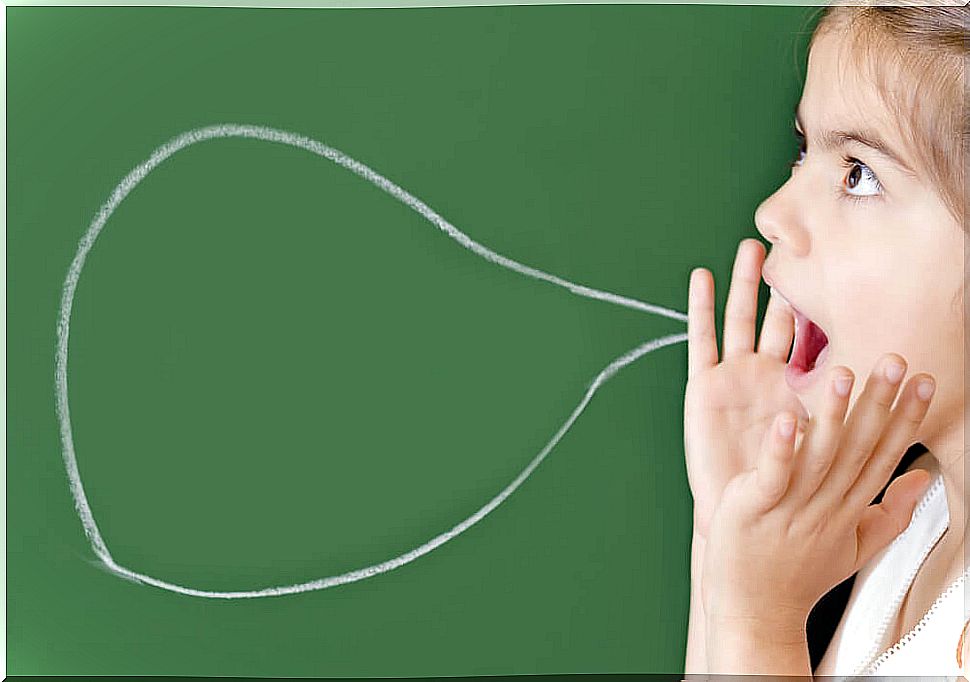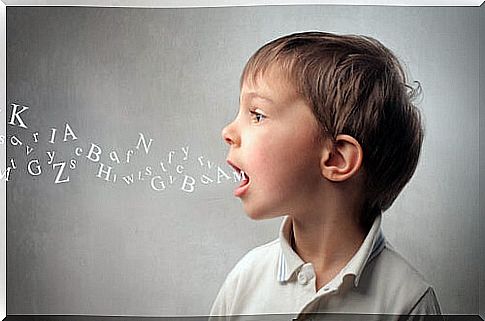Phonological Awareness In Children

Have you ever wondered why we speak in a certain way? Or how do children begin to say sounds that little by little become words? This is what phonological awareness is about, which we develop as children without even realizing it.
How is phonological awareness in children?
Concept
Phonological awareness is the foundation of any type of oral communication. Without sounds we would not be able to verbalize words, much less ideas.
Although we begin to develop this part of language when we are babies, it changes and matures throughout our lives. Some examples of this can be the improvement of diction and the learning of new languages with their corresponding sounds.
Phonology in childhood
But let’s start at the beginning: how do you talk to a baby? Surely you do not use the same tone or the same complexity as when you speak with another person. This phenomenon is called baby talk and thanks to it we learn the sounds of our language and the words that make it up intuitively.

Imitation and repetition are essential at this stage. Pronunciation is a complex process that activates many parts of the throat and mouth, so it is not easy to master. For example, when you say “garlic” to a baby, he tries to imitate you over and over again until he discovers the correct position to pronounce the j . What’s more, when they learn a new sound, they repeat it themselves several times.
Effects of phonological awareness in children
Phonological awareness is defined as the ability to access the structure of oral language and be aware of the phonological segments of words, necessary for learning the written language. Therefore, it is vitally important to learn to speak correctly during childhood.
In schools, children start with oral exercises and then teach them the correspondence between sounds and their spelling, the letters. Remember that mirror writing is normal at an early age. As they get older, so does the complexity, as they learn to write the words and phrases they say.
Little by little, they learn that not everything that is said and written has to be right, but that there are rules by which our language is governed. It is at this point that teachers and parents sometimes realize that children may have some degree of dyslexia, but nowadays it is not an impediment.
Enhance phonological awareness in children
Imitate and repeat
As we have said, it is the most used method with babies and children, but who says it is not useful for adolescents and adults as well? It is true that, as we grow, we take longer to adapt to new phonological rules, but it is by no means impossible.
We can perfect our pronunciation in our language or in others at any age, all you need is a good example to follow. Try repeating words with similar sounds, such as tongue twisters, or imitating someone else’s accent and pronunciation. The more children exercise this ability, the easier it will be for them to adapt.

Read
We can enhance phonological abilities through two ways of reading: reading aloud or listening to the reading and imitating it later. In addition, if it is a reading with multiple characters, a joint reading can also be done.
Any kind of reading is beneficial. Instilling this habit in children will not only benefit them when it comes to writing or speaking, but will also expand their vocabulary, creativity and imagination. On the other hand, they also learn to speak in public.
Diction experts
There are times when children have a hard time pronouncing specific sounds. In these cases, a speech therapist is the best option to correct and exercise pronunciation appropriately.
In addition, both a speech therapist and some teachers can advise you on some exercises to help your child also at home. No one is perfect, but we all have the ability to improve.










